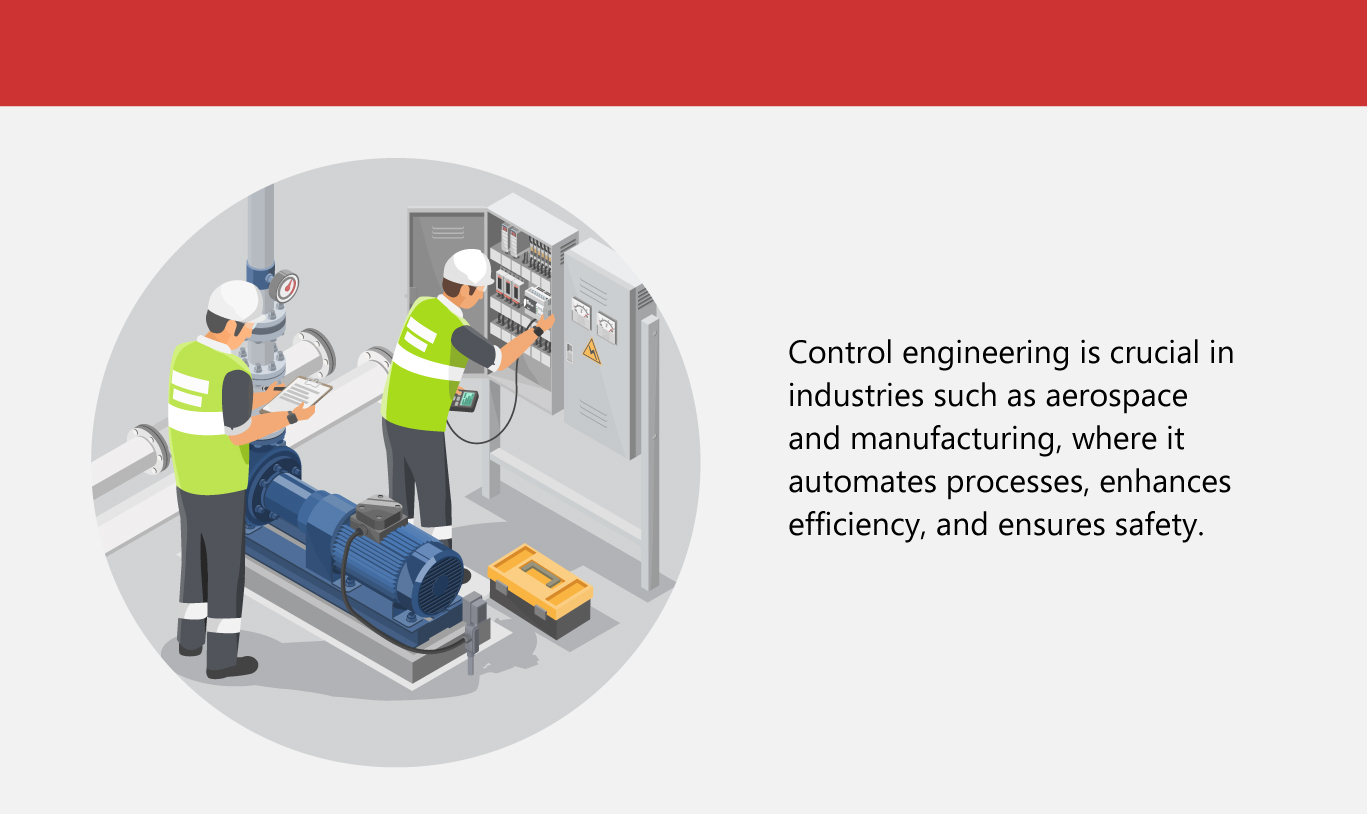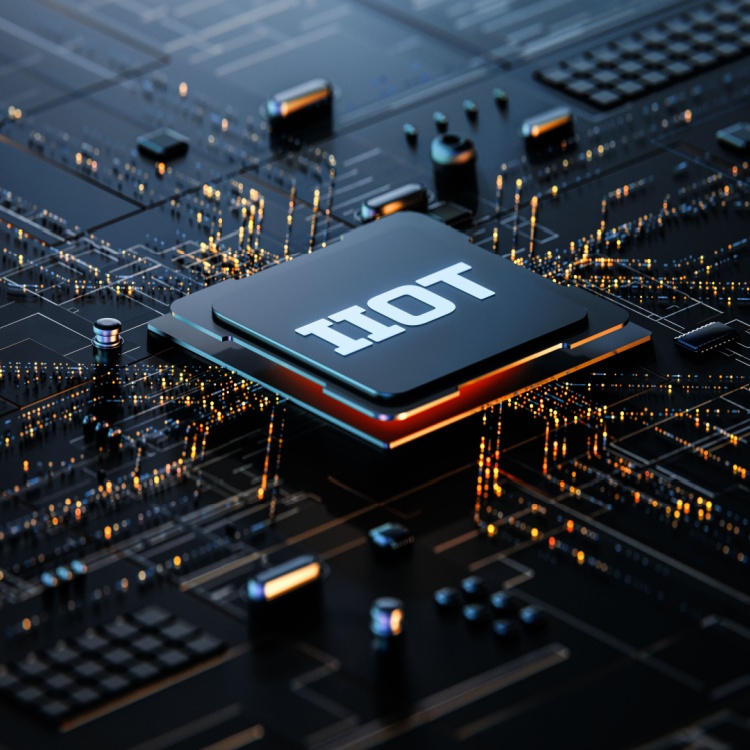Control Engineers and What They Do

In today’s automated world, control engineers are essential in ensuring accurate, consistent, and reliable processes by constantly monitoring and adjusting outputs, minimizing errors, and improving operational efficiency.
Control engineering is a specialized field focused on designing systems to manage and regulate dynamic processes across sectors such as the automotive and industrial markets, aerospace, robotics, and energy. Integrating concepts from different engineering fields, including mechanical, electrical, and chemical, control systems rely on networks of electrical and electromechanical devices to achieve precise outputs.
What are the components of control engineering?
Control engineering typically involves these core principles:
-
Control systems
A control system integrates multiple elements to achieve a specific goal, including detectors, operators, regulators, and feedback mechanisms. These systems are essential in test solutions, where precise control is crucial. Control systems are divided into two main types: open-loop systems, which operate without feedback, and closed-loop (feedback) systems, which adjust continuously based on feedback to ensure the desired result.
-
Closed-loop control
Closed-loop control is a key principle in control engineering, especially in industrial manufacturing solutions. It involves constantly tracking a system's performance via detectors and assessing it against a target value. The gathered feedback is applied to modify the system’s inputs, fine-tuning the output to ensure balance and achieve targets.
-
Feedback regulation
Feedback regulation or control involves continuously monitoring a system’s performance using sensors and comparing it to a target value. Key personnel, such as manufacturing engineers, then use the gathered feedback to adjust the system’s inputs or actions.
-
Adjustment algorithms
These algorithms are mathematical models that define a control system's response to different variables and situations. They can include fuzzy logic control, Proportional-integral-derivative (PID) control, adaptive control, and optimal control with the choice depending on the application and system requirements, particularly to enhance manufacturing capabilities.
-
Modeling of systems
Control engineers use mathematical models, such as differential equations or transfer functions, to analyze dynamic systems. System modeling enhances engineering capabilities by predicting responses, designing control strategies, and optimizing performance.
-
Stability assessment
Stability is key in control system development. A stable system maintains consistent behavior, while an unstable one shows fluctuations or erratic patterns. Control engineers use stability assessments to ensure systems operate within secure, optimal limits.
What are some practical uses of control engineering?
Control engineering can be applied in the following industries:
-
Global Manufacturing
Control engineering is a cornerstone of global manufacturing, optimizing production processes across sectors. By regulating variables such as pressure, temperature, and flow rates, control systems enhance efficiency, quality, and safety in industries like Electronic Manufacturing Services (EMS). Automation powered by control engineering reduces human error, boosts productivity, and contributes to more sustainable and competitive industries worldwide.
-
Robotics and Autonomous Systems
In manufacturing markets, control engineering ensures precision and coordination in robotics and autonomous systems. By developing tailored control algorithms, engineers enable robots to perform complex tasks accurately and safely, whether in automated factories, healthcare, or space exploration. These innovations drive progress and meet the specific needs of diverse industries.
-
Automotive Manufacturing
In the automotive sector, control engineering plays a key role in automated assembly lines and robotic systems, ensuring consistent vehicle quality and optimized production processes. It also drives advancements in autonomous driving and electric vehicles, where control systems manage key functions like stability control and battery management.
-
Aerospace
Control systems are crucial in aerospace industries, where they manage flight control, navigation, and satellite operations. These systems ensure the stability, accuracy, and safety of both aircraft and spacecraft.
-
Energy
Control engineering plays a vital role in power generation, distribution, and renewable energy systems, optimizing energy flow, maintaining grid stability, and improving efficiency to support sustainable energy solutions.
-
Water Treatment and Environmental Systems
Control systems are applied in water treatment and environmental management, regulating treatment processes to ensure quality and optimizing energy use in these critical systems.
In summary, control engineering is integral to advancing manufacturing markets and industries, driving improvements in productivity, safety, and innovation across various sectors.
What does a Control Engineer do?
A control engineer specializes in developing, applying, and overseeing control systems that optimize the performance of complex processes and machinery. These professionals work in diverse industries, creating strategies and algorithms to improve efficiency, safety, and precision.
Control engineers leverage their expertise in mathematics, physics, and engineering principles to build automated systems. They often use technologies like Programmable Logic Controllers (PLCs) and Supervisory Control and Data Acquisition (SCADA) systems. For those exploring careers in manufacturing, engineering manufacturers play a crucial role in automating processes and boosting operational reliability.
Ultimately, control engineers ensure that automated systems run smoothly, driving productivity, quality, and safety across various industries.
What are the various specializations within control engineering?
Control engineering is a broad field with various specializations, each contributing to the advancement of technology and process optimization across industries. Below are five key types of control engineers and their roles:
-
Robotics Control Engineer
These engineers focus on designing control systems that allow robots to perform complex tasks with precision. They handle aspects such as motion control, path planning, and sensor integration, ensuring robots can work autonomously in environments ranging from manufacturing floors to medical applications.
-
Manufacturing Control Engineer
In manufacturing settings, control engineers design and optimize control systems for production processes. Their goal is to improve efficiency, maintain product quality, and ensure safety, often through automation that minimizes human error and enhances overall performance.
-
Automotive Control Engineer
Automotive engineers specialize in creating control systems for vehicles, such as anti-lock braking systems (ABS) and engine control units (ECUs). They also contribute to the development of autonomous driving systems, making vehicles safer and more efficient.
-
Process Control Engineer
These engineers optimize industrial processes, such as in chemical manufacturing or refining. They develop systems that regulate variables to maintain consistency, reduce waste, and improve production efficiency.
-
Aerospace Control Engineer
Aerospace engineers design control systems for aircraft and spacecraft, ensuring safe and stable operation. They work on flight control systems, navigation, and guidance mechanisms that are critical for successful and safe space missions.
In conclusion, control engineering is vital across numerous industries, playing a crucial role in optimizing processes, ensuring safety, and driving innovation. As industries evolve, the demand for skilled control engineers will continue to grow, making it an exciting field for future professionals. As one of the Top 20 EMS companies in the world, IMI has over 40 years of experience in providing electronics manufacturing and technology solutions.
As one of the Top 20 EMS companies in the world, IMI has over 40 years of experience in providing electronics manufacturing and technology solutions.
We are ready to support your business on a global scale.
Our proven technical expertise, worldwide reach, and vast experience in high-growth and emerging markets make us the ideal global manufacturing solutions partner.
Let's work together to build our future today.
Other Blog



